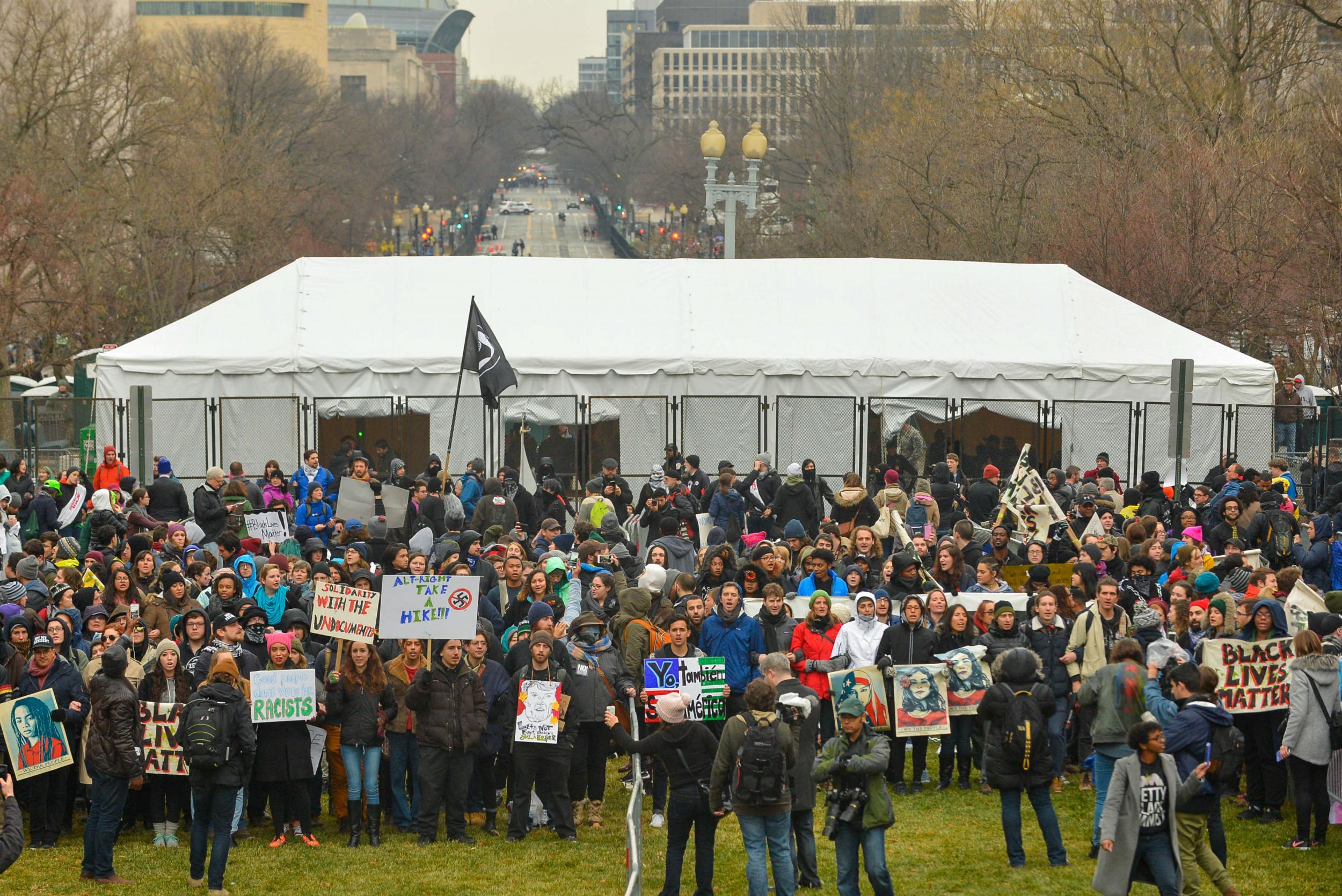Trump administration orders Facebook to hand over private information on 'anti-administration activists'
A legal challenge warns of stifling online speech

Your support helps us to tell the story
From reproductive rights to climate change to Big Tech, The Independent is on the ground when the story is developing. Whether it's investigating the financials of Elon Musk's pro-Trump PAC or producing our latest documentary, 'The A Word', which shines a light on the American women fighting for reproductive rights, we know how important it is to parse out the facts from the messaging.
At such a critical moment in US history, we need reporters on the ground. Your donation allows us to keep sending journalists to speak to both sides of the story.
The Independent is trusted by Americans across the entire political spectrum. And unlike many other quality news outlets, we choose not to lock Americans out of our reporting and analysis with paywalls. We believe quality journalism should be available to everyone, paid for by those who can afford it.
Your support makes all the difference.The Department of Justice has demanded Facebook turn over information about three anti-Trump activists, drawing a legal challenge from civil liberties advocates who say the government is overreaching by seeking vast amounts of personal information.
Warrants issued by the US Attorney for the District of Columbia in February asked Facebook to detail the activities of three users who spearheaded mass protests of President Donald Trump’s inauguration, as well as information about the page they used to plan the demonstrations. More than 200 people were arrested as violence flared in otherwise peaceful gatherings.
Citing “evidence of rioting or intent to riot”, the sweeping requests ask Facebook to disclose all personal information of the organizers, including their passwords and physical addresses, as well as all activity associated with their accounts, any photos or videos they uploaded or any messages they sent. A separate warrant asks Facebook to reveal information about users who interacted with a page used to plan the protests.
The American Civil Liberties Union (ACLU) has moved to block the warrants on behalf of the targeted activists, arguing in a filing that enforcing the warrants would “reach deeply into individuals’ private lives and protected associational and political activity”.
It warns that giving the government access to such broad repositories of data would stifle future speech.
“The enforcement of the warrants would chill future online communications of political activists and anyone who communicates with them, as they will learn from these searches that no Facebook privacy setting can protect them from government snooping on political and personal materials far removed from any proper law enforcement interest”, the filing warns.
A spokesman for the US Attorney's office declined to comment. In a statement, Facebook backed the ACLU's efforts on behalf of the activists.
“We successfully fought in court to be able to notify the three people whose broad account information was requested by the government. We are grateful to the companies and civil society organizations that supported us in arguing for people’s ability to learn about and challenge overly broad search warrants“, a spokesperson said.
Among the information that could be exposed, the ACLU's court filing argues, is information about conversations with friends and family members, “intimate messages” sent to romantic partners and “detailed discussions” of having endured domestic violence. One of the targeted activists said in a filing that the government would have access to information about her long history of unrelated political activity, including posts identifying others who participated in various marches and sit-ins.
And the government’s dragnet could sweep up thousands of other people, the ACLU argues, citing the roughly 6,000 people who “liked” the disruptj20 page and others who said they would attend events sponsored by the page unrelated to the inauguration protest, including a “Queer Dance Party at Mike Pence’s House”.
The unfolding legal battle marks the latest clash over the inauguration protests, with government demands for information running up against the privacy concerns of web users.
Earlier this year, the Department of Justice served online service provider DreamHost with a warrant seeking information about anyone who had visited a website used to organize anti-Trump protests. DreamHost challenged the request, and ultimately a judge compelled the company to turn over a scaled-down collection of data - an outcome DreamHost framed as a victory for its users.
Join our commenting forum
Join thought-provoking conversations, follow other Independent readers and see their replies
0Comments